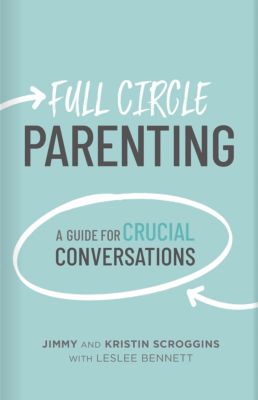
Most parents want to raise “good” kids, but they’re less concerned about whether their children share their religious beliefs as adults.
By Aaron Earls
Most parents say they want their children to be honest and hardworking as adults. But they’re not nearly as concerned that their children grow up and embrace their same religious beliefs.
A Pew Research study on parenting asked U.S. parents a host of questions about how they are aiming to raise their kids, what their top worries are, and what’s most important to pass on to the next generation.
The vast majority of parents say it is extremely or very important that as adults their children will be honest and ethical (94%), hardworking (88%), someone who helps others in need (81%), accepting of people who are different from them (80%), and ambitious (65%). Far fewer see it as similarly important that as adults their children have similar religious beliefs (35%) or political beliefs (16%) as them.
U.S. parents are twice as likely to say it's at least very important for their children to become ambitious adults (65%) than to say the same about their children having similar religious beliefs as them (35%), according to Pew. Click To TweetCertain religious and ethnic groups place more emphasis on passing on their faith. Black (40%) and Hispanic parents (39%) are more likely to say it’s extremely or very important their children share their religious beliefs than white or Asian parents (32% each). White evangelical Protestant parents (70%) are by far the most likely to express a strong desire for their children to follow in their religious footsteps. More than half of Black Protestant parents (53%) agree. Fewer Catholic (35%) and non-evangelical Protestant parents (29%) prioritize their children sharing their religious beliefs. Only 8% of the religiously unaffiliated say it’s important to them.
Passing on faith
Passing on religious faith to the next generation is proving difficult for many parents. A Lifeway Research study found 66% of young adults who attended church regularly as teenagers stopped attending for at least a year after high school. Seven in 10 young adults who dropped out of church say it wasn’t an intentional decision to stop attending church. They simply stopped seeing it as an important part of their lives. Some church dropouts return—31% currently attend twice a month—but more attend rarely (39%). And almost as many no longer attend at all (29%).
Lifeway Research also conducted a study of churchgoing Protestant parents to determine the spiritual status of their adult children and their spiritual practices as children. While 85% of their children identify as Christian as adults, most are not currently engaging in many observable spiritual practices.
85% of the adult children of churchgoing Protestant parents still identify as Christian, but most are not currently engaging in many observable spiritual practices. Click To TweetParents engaging in spiritual disciplines like reading the Bible increased the likelihood their children grew up to be spiritually healthy adult believers. Additionally, children being engaged in many of those same disciplines as kids also increases the chances of maintaining their active faith into adulthood.
Parenting perspectives
Additionally, the Pew Research study asked parents about their priorities for their children as adults and their experiences as parents.
Modern parents are most likely to place a high priority on their child growing up to be financially independent (88% say this is extremely or very important) and having a career they enjoy (88%). Around 2 in 5 (41%) say it’s extremely or very important for their child to earn a college degree. Far fewer place a high importance on their kids eventually getting married (21%) or having children themselves (20%).
Most parents (62%) say parenting is at least somewhat harder than they expected. But slightly more say they are a very good or excellent (64%) parent. Even more say being a parent is at least one of the most important aspects of who they are (87%).
U.S. parents are around twice as likely to say parenting is enjoyable (82%) or rewarding (80%) at least most of the time, compared to it being tiring (41%) or stressful (29%), according to Pew Research. Click To TweetParents are split as to whether they are trying to raise kids similarly to their own upbringing (43%) or trying to do things differently than their own parents (44%). Specifically, most (63%) say they want to instill similar values and religion as their own upbringing. And just 13% want to change those things for their children. Parents are most likely to say they want to change the love and relationship they experienced growing up (44%). They are nearly split on whether they want to discipline similarly to (29%) or differently than (32%) their parents.
Overall, parents are around twice as likely to say parenting is enjoyable (82%) or rewarding (80%) at least most of the time, compared to it being tiring (41%) or stressful (29%).










